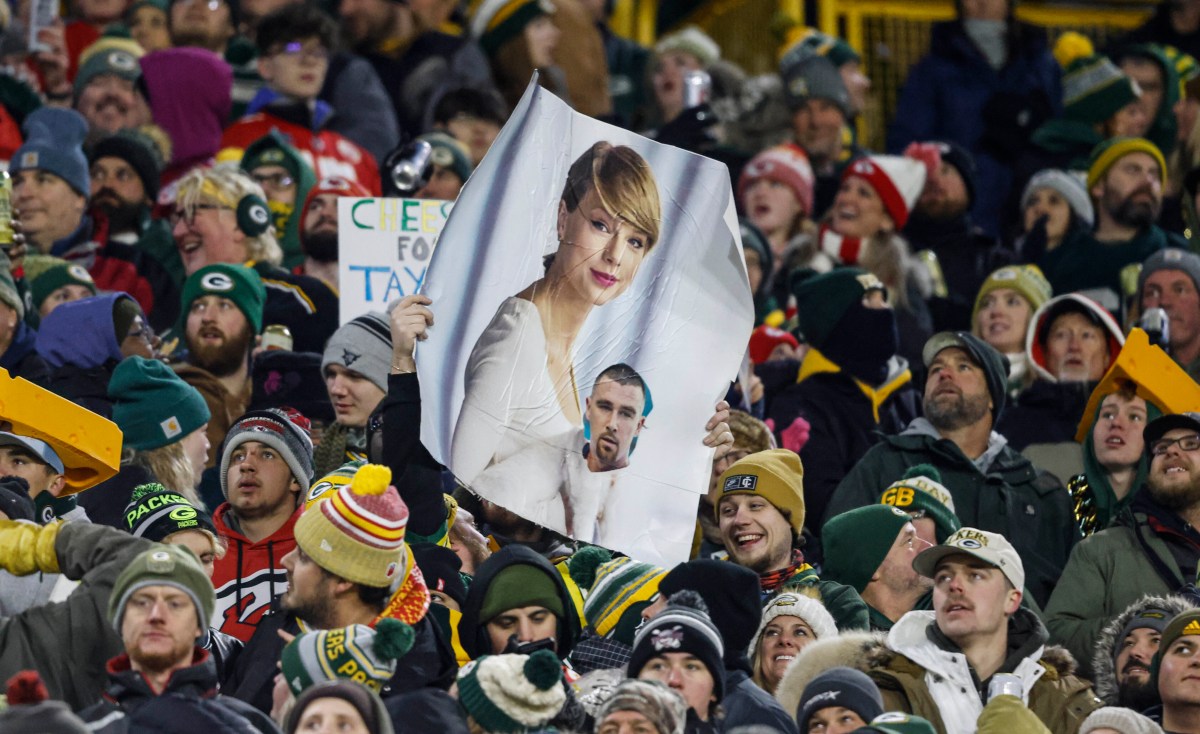If you had to pick one symbol of how conservatives are losing American culture, you could do worse than the mighty NFL’s embrace of the even mightier Taylor Swift.
Before the pop music superstar was crowned Time magazine’s “Person of the Year,” her romance with eight-time Pro Bowler Travis Kelce spawned countless viral memes, including tongue-in-cheek photoshops of Swift on the cover of the next Madden NFL video game.
Conservative football fans are unhappy. Pop icon Swift is largely apolitical but endorsed President Joe Biden in 2020 and has supported LGBTQ rights. Her beau made right-wing enemies through his advocacy for COVID-19 vaccines and by appearing in an advertisement for Bud Light after anti-trans conservatives started boycotting the brand. But does their anger even matter? The NFL’s marketing decisions suggest otherwise.
Here’s why: Yes, Republicans still have the absolute numbers to win national elections, even though they won the popular vote only once in the last eight presidential elections between 1992 and 2020. They continue to underperform in recent elections.
But conservatives are falling farther behind in terms of cultural and economic power. Contrary to the right-wing insistence that “woke goes broke,” the biggest movie of the year was Barbie, a stridently and subversively feminist juggernaut that raked in over $1.36 billion at the global box office. Oppenheimer, a nuanced meditation on the creation and use of the American nuclear bomb, followed closely behind with just under $1 billion in global ticket sales and broke box office records for a biopic. Disney’s live-action version of The Little Mermaid, which endured heavily racist conservative attacks for featuring a Black lead, hauled in $569 million globally and broke streaming records on streaming service Disney+.
Meanwhile, few people in history have lost as much money as quickly as Elon Musk has since taking over Twitter (now X). After endorsing Biden in 2020, Musk has become a right-wing icon by promoting homophobic, transphobic, racist, and anti-Semitic positions while advocating far-right conspiracy theories all the time feigning to be a zealous free speech advocate even as he caves to authoritarians. He bought Twitter largely because he was unhappy with its supposed left-leaning slant and has shifted the platform well to the right. The result? A financial disaster. Since the takeover, major advertisers have been fleeing Twitter (sorry, X). The flight has accelerated to crisis levels since Musk endorsed the anti-Semitic Great Replacement conspiracy. X is now worth at most $19 billion, compared to the $44 billion he paid. The enterprise is in grave danger of being forced into bankruptcy by its creditors.
It stands to reason. Counties that voted for Biden constitute 70 percent of U.S. gross domestic product. Americans continue to urbanize, with the percentage living in urban areas reaching 80 percent and growing. Blue states remain more prosperous than red states and subsidize them heavily.
Most crucially, major corporations crave younger consumers and lifelong brand loyalists. Outside of cable news, older consumers are less attractive to most advertisers. And younger people (meaning anyone under 45!) lean decidedly to the left. The most coveted 18-29-year-old demographic leans farther left than any other. Long gone are the days of the Reagan youth, when 18-24-year-olds backed the Republican over Walter Mondale by over 30 points in the 1984 presidential election, and corporate America catered to them accordingly.
Republican politicians like Ron DeSantis may rail against “woke” corporations. The reality is that when companies like Nike and Disney—no progressive angels themselves—seem to align with the left by promoting anti-racism and LGBTQ causes, they are catering to the tolerant demographic that matters most to the bottom line. It’s understandable why older conservatives would feel business has left them behind, ranting about supposed lefty strongholds like Blackrock and Disney. But there’s no top-down conspiracy of woke corporations as defined by Tucker Carlson. It’s just capitalism.
This is especially true given the Republican Party’s increasing reliance on far-right religious voters, whose cultural power is also waning rapidly despite recent judicial and legislative wins. Americans are becoming rapidly less affiliated with organized religion. Younger people are markedly less religious than their elders. In 2021, membership in religious organizations fell below majority levels for the first time, and “nones”—those who describe themselves as atheist, agnostic, or nothing specific—now account for around 30 percent of Americans, up from just 9 percent thirty years ago. White evangelical politics is the province of mostly older voters disconnected from the broader culture and economy.
America’s vicious culture wars can be explained mainly by the marketplace responding to 18-to-45-year-old consumers in cities. At the same time, the electoral system is more sensitive to senior citizens in exurbia. Younger city-dwellers have less purchase in public policy than they deserve, while older exurban voters with unwarranted political power believe they deserve more cultural influence.
Of course, the geographic inequality that creates this political imbalance is nothing to celebrate—quite the opposite. The economic challenges facing red areas must be confronted and resolved, and Democratic policies are working hard to do just that (even while Republican policies explicitly try to hurt and punish blue urban areas.)
But in the meantime, Republican complaints and conspiracy theories about “wokeness” in American culture are the result of overestimating their purchasing power. To quote Taylor Swift, they’re being too loud and need to calm down.



